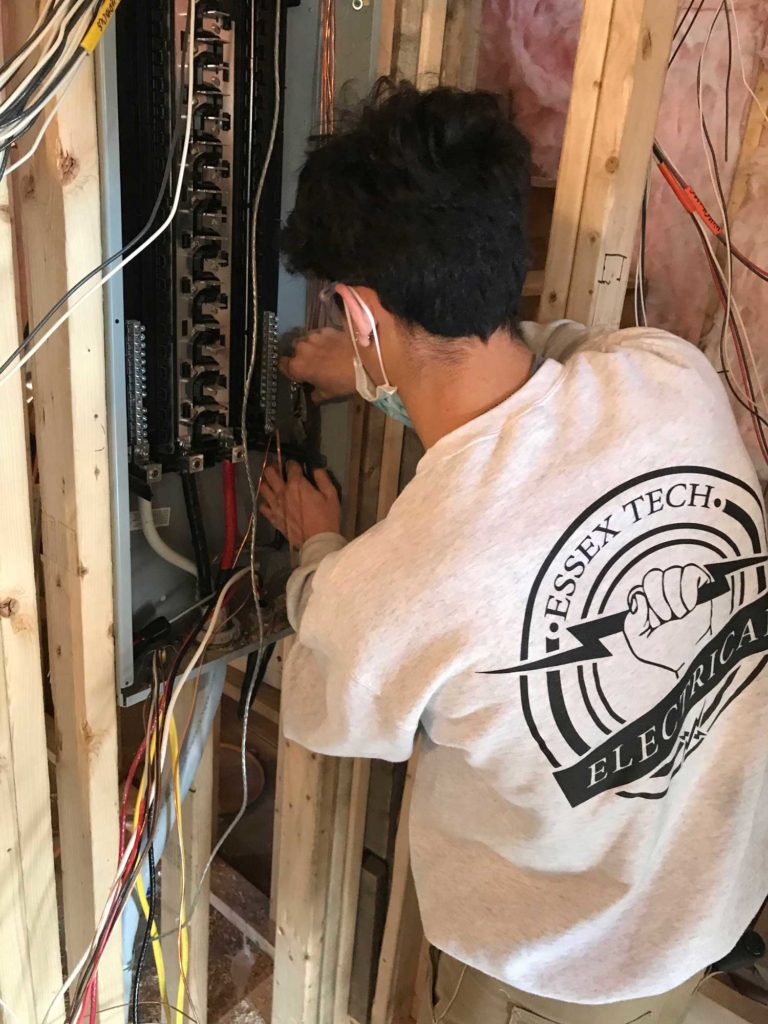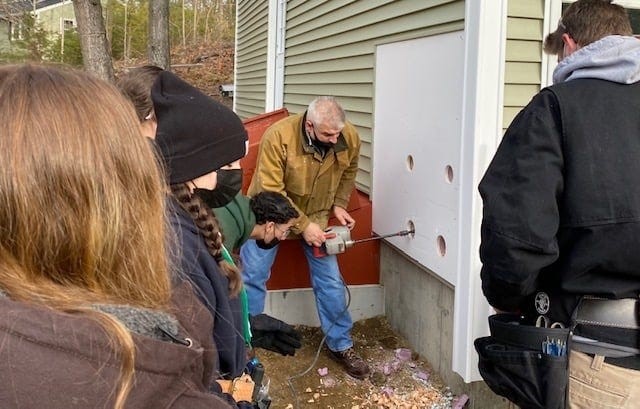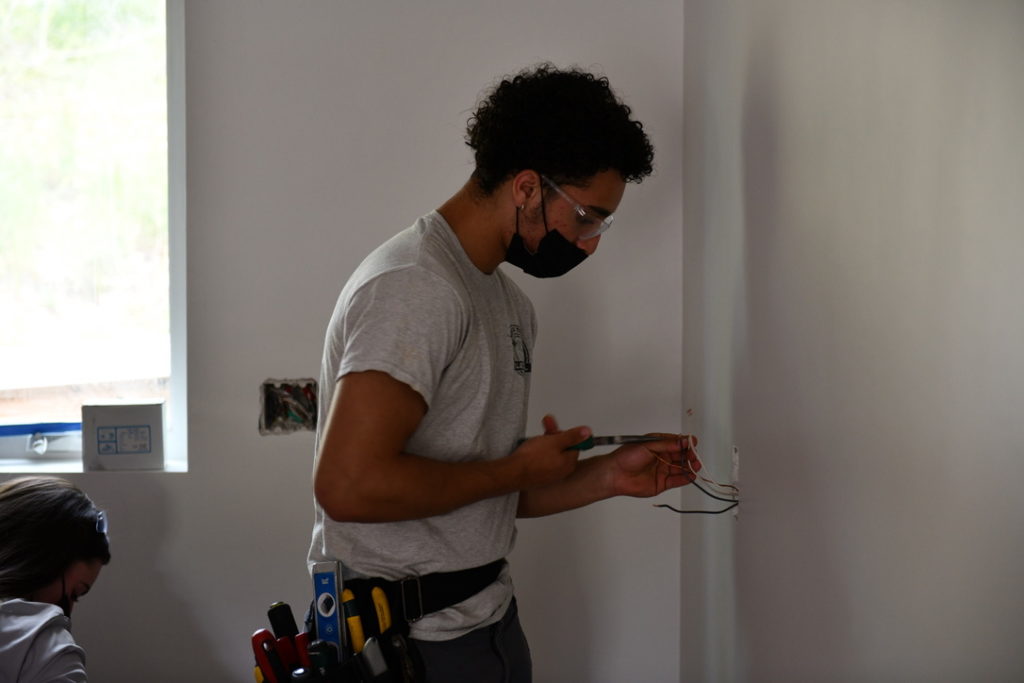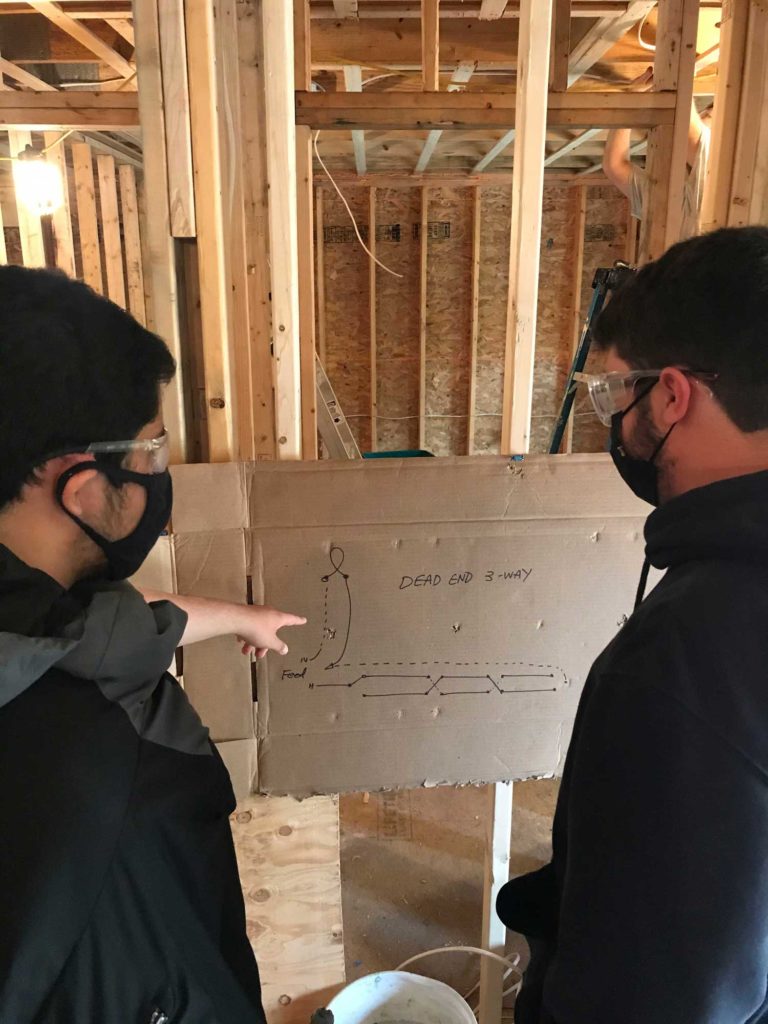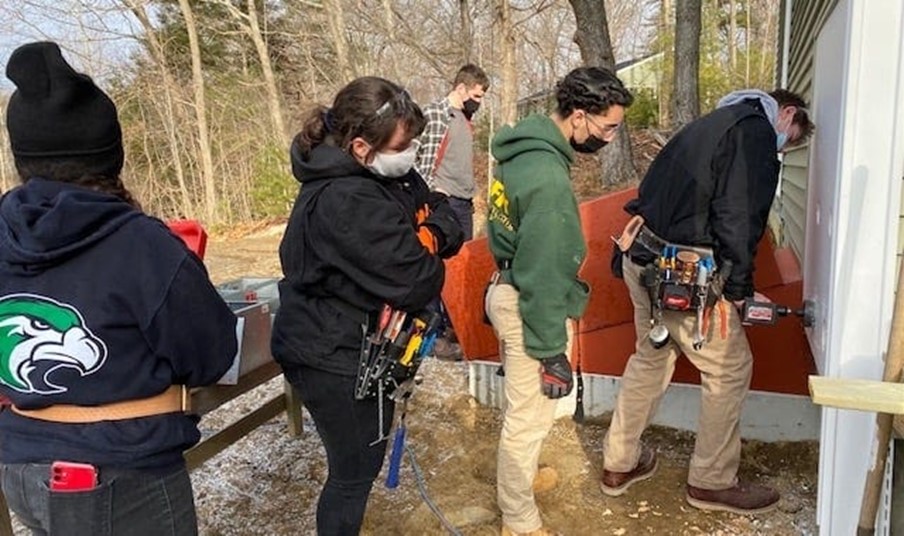Photo courtesy of Essex North Shore Agricultural and Technical School. Used with permission.
For the past five years, construction-related students at Essex North Shore Agricultural and Technical School (ENSATS) in Hathorne, Mass., have been donating their burgeoning skills — and honing them in the process — to help build homes for Essex County Habitat for Humanity. The arrangement is great for both sides; Habitat for Humanity saves money that would normally go toward construction costs, enabling them to build even more homes in partnership with local families throughout the county. As for the students, they gain vital experience in their trade while also giving back to their community.
“The partnership we have with Habitat for Humanity is a great opportunity for our students in our construction cluster programs to learn their trade and contribute to a worthy cause,” says Jill Sawyer, director of career and technical education at ENSATS. “We feel fortunate that, year after year, we can continue to partner with Habitat for Humanity to provide homes for individuals within our district’s communities.”
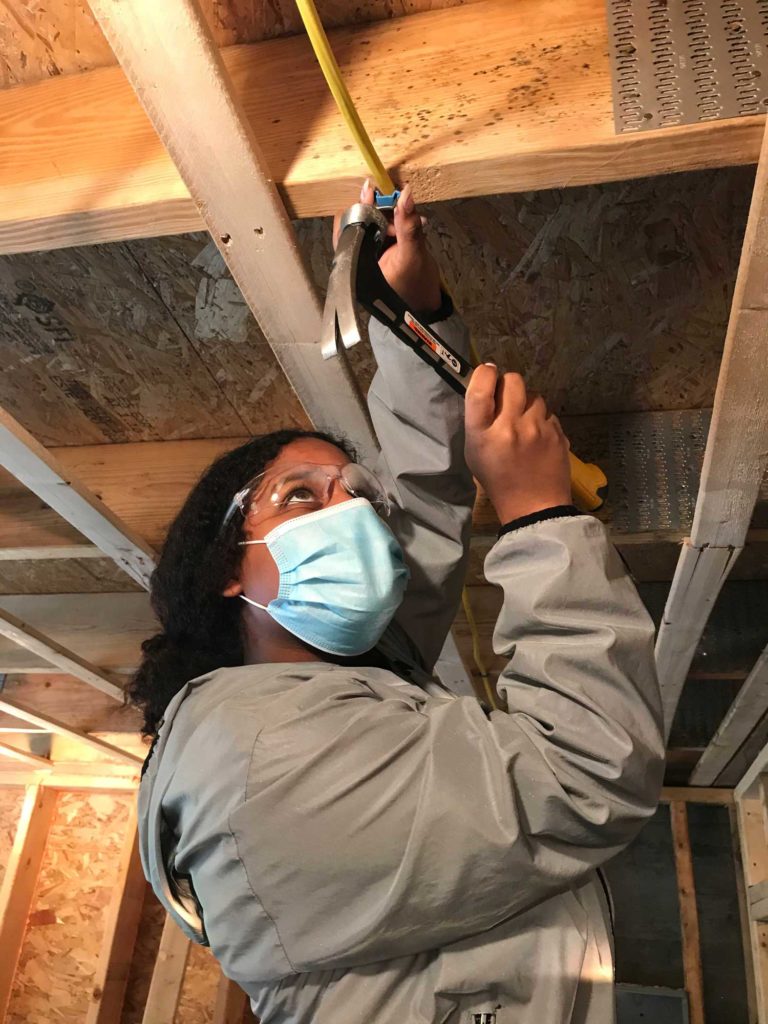
The ENSATS partnership with Habitat for Humanity benefits the community on many levels. Electrical instructor Christos Xerras explains: “In addition to providing Habitat with access to professional quality construction from mechanical trades like HVAC, plumbing, and electrical, our students benefit as well. Working on a real construction site gives our students an opportunity to practice their trade on a scale not possible in a shop or lab. Students are responsible for their own jobs on the project, must work with the Habitat volunteers, and also coordinate schedules and mechanical integration with other trades from our school. Perhaps most important is the lasting impact of the students’ participation on the project. They are excited to see the house completed and look forward to driving by years from now and being able to say, ‘I did the electrical work on that house!’”
Electrical instructor Richard Whitaker noted the change in student attitudes after recently experiencing some time working on a site. “These students have been through a lot this past year,” Whitaker says. “They really matured and developed into true apprentices on this project. They often surprise themselves on the job site with how much they have learned and how rewarding it is to apply what they have studied in the classroom to a real construction environment.”
“Affordable housing projects are truly only made possible through partnerships like these,” says Jacques Du Preez, director of marketing at Essex County Habitat for Humanity. “Our communities are stronger when we work together for the common good. A higher rate of home ownership means stronger neighborhoods, stronger schools and stronger communities for everyone.”



